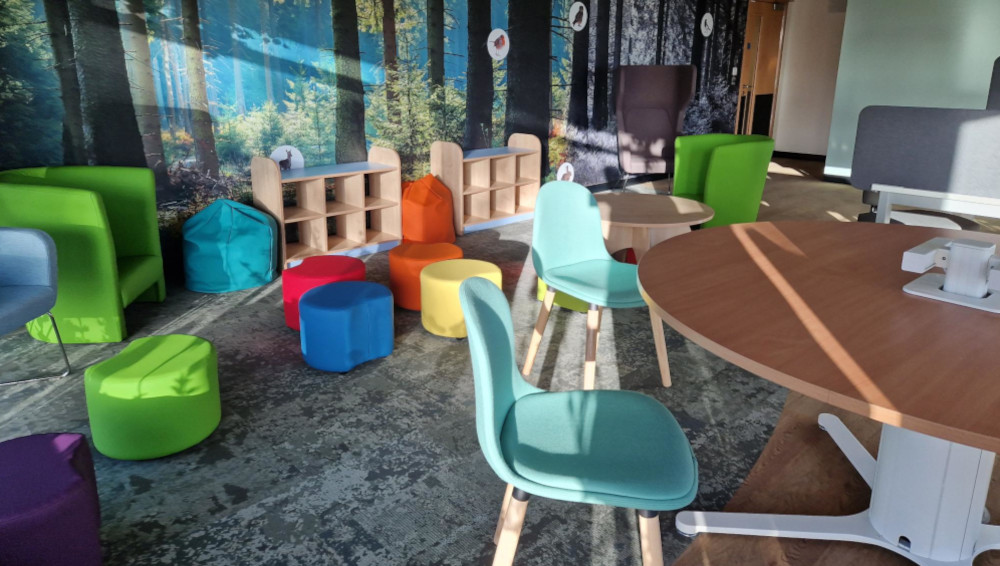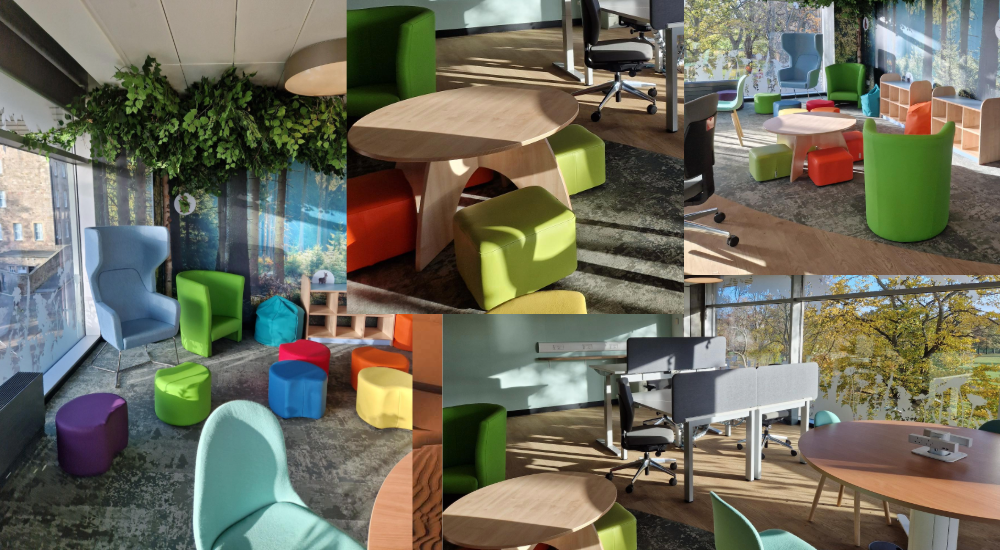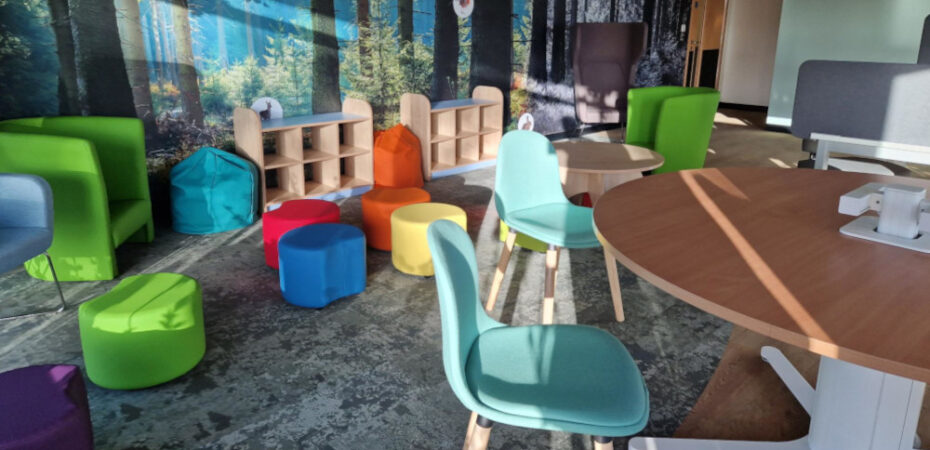
In this post, Craig Robertson, Head of Facilities (Information Services) and Dr Neil Speirs, Widening Participation Manager share the story behind an innovative and impactful initiative – the Carer & Child room at the Main Library. This initiative aims to support student parents/carers by providing learning environments that foster a sense of belonging within the university community. This post belongs to Mar-Apr Hot Topic series: Being student parents/carers↗️.
There are currently some 2900 matriculated student parents at our institution – approximately 85% are postgraduate students and 15% are studying at undergraduate level. Historically, access to centrally managed study spaces for parents with their children was simply non-existent across campus. This didn’t create the sense of inclusion and belonging for our student parents that our strategy 2030 sets out, when it states that ‘we will encourage and take care of one another’.
Various colleagues from the Main Library, Facilities Operations, Widening Participation and the Student Parent Representative all came together to change things – providing a suitable and safe space for our students and their children. After a feasibility study was carried out, a suitable space was identified in the Main Library in George Square. We also learned from other institutions across the country and how they were able to successfully provide such spaces for their student parents – although, disappointingly, not all institutions currently provide such study spaces.
After a successful Small Capital Works funding bid, a concept design was created, with several feedback sessions for staff and user groups – including the Student Parent Representative. Taking the Meadows as inspiration, an enchanted forest theme influenced materials choices and overall aesthetics. The glazing manifestations takes the outline of a forest and includes animals that children can play with and attach to the magnetic wall.

The room had a soft launch in December 2023 with full communications being sent to all student parents at the start of semester two this year. From 4th December – 15th February there have been a total of 378 admissions to the room. The next steps involve building on the success of this study space to create another at Kings Building’s and to encourage students and staff to donate used books or toys to the room for other children to engage with.
How to access the space and what it can offer you: Carer & Child Room – Main Library | The University of Edinburgh↗️
 Craig Robertson
Craig Robertson
Craig Robertson is a Facilities Operations Manager (essentially Head of Facilities for ISG) at The University of Edinburgh. With a background in Architectural Technology, he specializes in managing existing buildings and facilities. His career highlights include overseeing projects at the National Library of Scotland. Craig is passionate about sustainability and making buildings more accessible to everyone. His interests include architectural design, project management, sustainability, maximising utilisation of existing assets, adapting and re-use of existing buildings, widening participation for marginalised groups (especially those with learning difficulties and those from socio-economically deprived backgrounds). Craig’s commitment earned him the 2023 ISG Award for Inspiring Role Model.
Neil Speirs
Dr Speirs’ role involves working as a manager, practitioner and researcher in a number of areas concerning widening participation & access and related policy. He has strategic oversight and management of a number of self-generated community projects. These projects along with his teaching and research are centred around a number of areas of interest that span from primary education through secondary, further and higher education. A few of these areas of interest and specialisms are; the transition from primary to secondary education, the academic achievement of working class young males, the sociology of sport, widening participation student transitions, the equity of student experience, social reproduction & critical pedagogy, the working class mature student, the hidden curriculum, peer-related pedagogies and autoethnography.


